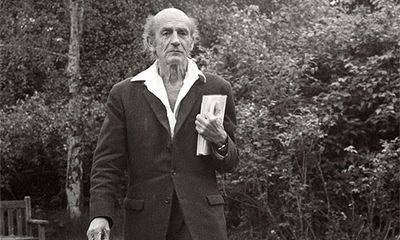Does anyone have a good word to say for the critic?
Does anyone have a good word to say for the critic? “Asking a working writer what he thinks about critics is like asking a lamp post how it feels about dogs.” So said the screenwriter Christopher Hampton in 1977, the year that saw the release of a now-forgotten, perhaps ill-reviewed, film Abe’s Year. In Brendan Behan’s view, critics are like “eunuchs in a harem”: they know how it’s done, “but they are unable to do it themselves”. The literary critic, said Cyril Connolly, unendearingly, had “the thankless task of drowning other people’s kittens”. Can we rely on Kenneth Tynan, himself a famous critic, to elevate the critic’s position? Sadly, not. “A critic is a man who knows the way but cannot drive the car.”
These remarks are reported in the Oxford Dictionary of Humorous Quotations, edited by Gyles Brandreth. Theatre critics are particularly unpopular, since the hard work of many vigorous thespians can be undone by the groan – squeal? – of a single eunuch. The characteristic sound of a Sunday morning, said one casualty, is that of Harold Hobson (drama critic for the Sunday Times) barking up the wrong tree.
It is conveniently forgotten that without the harmful drudge scribbling in the stalls, all the dramatist’s great work might go unnoticed, unremarked, unrecorded. And who has not felt like Groucho Marx: “I didn’t like the play, but then I saw it under adverse conditions – the curtain was up”. Or Dorothy Parker: “House Beautiful is play lousy”. Or Noël Coward watching Lionel Bart’s musical Blitz: “As long as the real thing, and twice as noisy”.
To qualify for inclusion in Mr Brandreth’s Dictionary, “you have got to make the editor laugh. Or smile”. Most readers will smile frequently, but we frowned whenever we saw the word “attributed” after a quotation (about drowning kittens, for example). Most of us have had remarks attributed to us that we never made. And, more rarely, remarks we wish we had made. John McEnroe said, “The older I get, the better I used to be”, which we thought was witty of Mac, until we learned that he was quoting the basketball player Connie Hawkins. You might think we’ve just caught Mr Brandreth out there, but in fact he provides the information himself.
The only species with less claim to sympathy than the critic is the male. The Dictionary has a section on men’s foibles, some of it humorous: “Most men think monogamy is something you make dining-room tables out of” (Kathy Lette). The corresponding section on “Women and Woman’s Role” – start feeling the sympathy right now – contains some equally disobliging comment . . . about men. This, too, is often humorous. “The trouble with some women is that they get all excited about nothing – and then marry him” (Cher). The Dictionary of Humorous Quotations (OUP) costs £20.
J. C.
An extract from the NB column in this week's TLS. Picture © Chris Joyce.
Peter Stothard's Blog
- Peter Stothard's profile
- 30 followers




